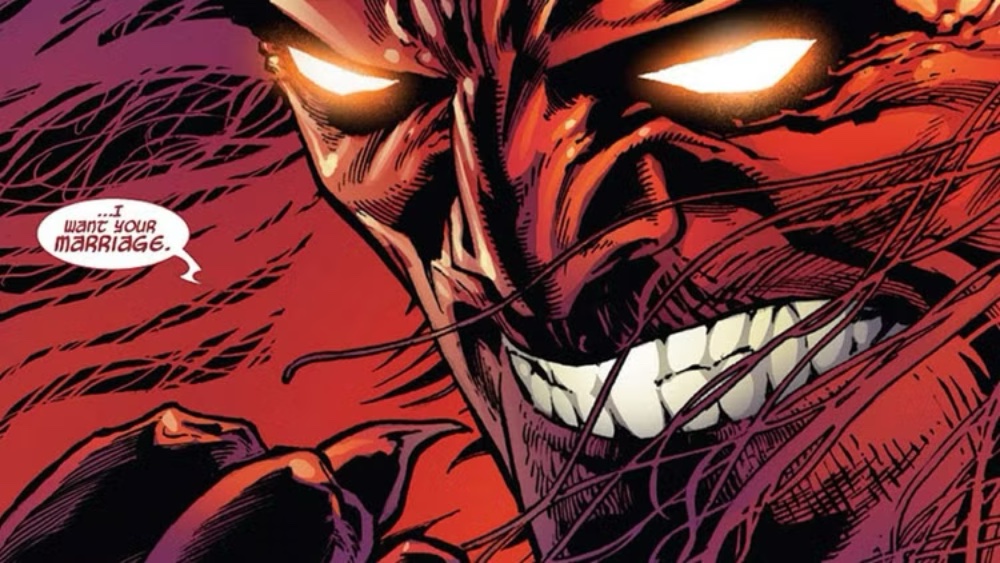Marvel and DC Comics have been telling superhero stories for almost a century now, regaling generations of fans with the adventures — and misadventures — of the greatest superheroes and supervillains ever. Creating superhero comics is the definition of collaboration. It’s not just writers working with artists, but also working with colorists to get the art the right tone, with letterers to brings the captions to life, and with editors, whose job is to ostensibly allow everyone to work together and tell the best stories possible. Some of the most important people in the history of superhero comics have been editors — Stan Lee, Julius Schwartz, Len Wein, Tom Brevoort, Joe Quesada, Axel Alonso, and many more have all played huge roles in defining what superhero stories can be. The role of the editor is the most complex part of the comic industry, and that complexity has often been a double edged sword for comic fans.
Videos by ComicBook.com
There are few more dreaded words in comics than “editorial mandate,” and those words have gotten more loaded as time has gone on. The editorial mandate is one of the most hated aspects of comics. You don’t notice them when everything is going well, but they’re often to blame for the worst aspects of superhero stories. Often times, the editors at DC and Marvel have been the biggest villains in the medium, taking characters and situations that fans love and transforming them, often times to the detriment to the fan base.
Editorial Mandates Have Damaged Comics Immensely in the 21st Century

Now, not all editorial mandates are evil. At their most hands off, it’s the editor’s job to make sure that the writers and artists involved are giving readers the most coherent stories possible, ones that match the years of development that have went into characters. However, the problem comes when what the editor thinks about a character isn’t what the general audience thinks. The best examples of this is the disaster that the Spider-Man books have become thanks to the most controversial story of the 21st century —”One More Day.”
I’m going to try to boil this down as quickly as possible, but it’s quite complicated. Spider-Man was long one of Marvel’s bestselling characters, but the Clone Saga of the ’90s did massive damage to the brand. In the early ’00s, Marvel editor in chief Joe Quesada got J. Michael Straczynski, the creator of the TV shoe Babylon 5, to write The Amazing Spider-Man. For the most part, fans loved Straczynski’s Spider-Man. He was able to present Spider-Man’s relationship with his wife Mary Jane better than nearly anyone, and told engaging Spider-Man stories. However, The Amazing Spider-Man didn’t reach the heights it had before the Clone Saga. Instead of thinking it was because of the damage that the Clone Saga did to the fandom (itself an editorial mandate), Quesada and Marvel executive editor Tom Brevoort felt that Spider-Man was more popular when they were young, before the character was married (which is false, since pre-Clone Saga ’90s Spider-Man books outsold those old books) and wanted to get rid of the marriage. They felt that it made Spider-Man too adult, and came up with “One More Day” as a way to fix all of that. They took the marriage out of continuity, and it’s been a decision that has haunted the Spider-Man books ever since.
This is where we get to the problems of editorial mandates. Quesada and Brevoort had their vision of Spider-Man and because of that vision, they got rid of something that the majority of the fanbase liked. Marvel likes to talk about the fans who actually like a not married Spider-Man while either ignoring or mocking anyone who doesn’t. Editors are entrusted with these characters by the companies who hire them, and they have final say on everything. So, when an editor doesn’t like what’s going on in a particular run of a character, the next time they hire creators for it, they’ll give them guidelines on the type of stories they want.
The current X-Men “From the Ashes” era is a perfect example of this. Brevoort was made editor of the X-Men books after the Krakoa Era, and his entire idea for the line is regression. He wants the X-Men to be the way they were in the ’80s and ’90s, so writers pitch ideas that fit that. Is this what all of the fans want? No, and that’s where the problems arise. The editors have final say and we’re stuck buying the resulting books. Don’t like Marvel adding in MCU stuff to the comics? Too bad, it’s an editorial mandate. The aborted Inhumans push of the ’10s was an editorial mandate. Don’t want to see Batman in every DC book? Well, Batman sells, so editors make sure he’s in more books. Editorial mandates force things on readers they don’t want. Sometimes, this is a good thing. Writer Alan Moore has echoed something that many creatives have said over the years and it amounts to not writing for the audience, because if the audience knew what they wanted, they would be telling the stories. Now, there have been plenty of times when editorial mandates were for the better, but as I said above, no one ever notices them. It’s only the ones that anger readers that get noticed.
Editorial Mandates Are a Double-Edged Sword

I was once a Spider-Man fan. I started reading comics in the ’90s, and was hooked on the Clone Saga while it was still good. However, the books sold well, and Marvel editorial decided to keep the story going far past when they should have. Then, they tried to get John Byrne to reboot the Spider-Man comics and things kept getting worse. However, bringing in Straczynski to fix things was an editorial mandate. The same can be said with Grant Morrison’s run on New X-Men or more recently, the Krakoa Era. Editorial mandates cut both ways.
The main problem with editorial mandate is the fact that much like the fans, the editors have their view of the characters and they are unwilling to bend. Editors, for better or worse, are just like us — fans. Fans want what they want.
What do you think of editorial mandates? Sound off in the comments below.









